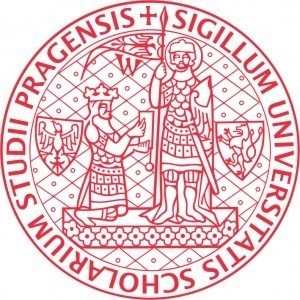Photos of university / #_charles.university_
The Master's degree program in European Law at Charles University is a comprehensive and multidisciplinary course designed to equip students with an in-depth understanding of the legal frameworks governing the European Union and its member states. This program provides a thorough exploration of European legal principles, institutions, policies, and the legal processes that shape the Union's legal system. Students will engage with topics such as EU constitutional law, internal market law, competition law, human rights law within the European context, and the legal aspects of European integration. The curriculum combines theoretical approaches with practical skills, preparing graduates for careers in international law firms, European institutions, governmental agencies, non-governmental organizations, or further academic research. The program emphasizes critical analysis, legal research, and interdisciplinary methods, ensuring students are well-versed in the complexities of European legal matters and can apply their knowledge effectively in real-world scenarios. Courses are taught by distinguished faculty members with extensive expertise in European law, providing students with insights into current legal challenges and policy developments within the EU. The language of instruction is primarily English, facilitating international cooperation and preparing students for careers within the global legal environment. Throughout the program, students have opportunities to participate in internships, exchange programs, and moot courts, enhancing their practical experience and professional network. Graduates of this program will be equipped with the legal knowledge, analytical skills, and intercultural competence necessary to excel in various fields related to European law, making it an ideal choice for aspiring legal practitioners, policymakers, and academics interested in the European legal system.
General course – lectures:
- European law and Finality of the European Union
- System of European Law and National Legal Orders
- European Protection of Human Rights
- Legal Aspects of European Economic Integration
- EU External Relations Law
- Individuals in EU Law
Possible topics of doctoral thesis
- Application of EU Law in the Czech Republic
- The Principle of Subsidiarity and the Role of National Parliaments in EU Law
- Minority Rights in the European Union
- The Concept of EU Citizenship
- Exhaustion of Intellectual Property Rights
- EU Competition and Intellectual Property Law
- European Monetary Law
- Europeanization of Criminal Law
The electronic application forms should be submitted by means of the Charles University Information system at https://is.cuni.cz/studium/ .
Immediately after completing the electronic application form in the Information System of Charles University send the application by mail to the following address
Univerzita Karlova v Praze
Právnická fakulta
Referát doktorského studia
nám. Curieových 7
116 40 Praha 1
or submit the application in person at the Filing Office of the Faculty of Law including the following:
a) a notarized copy of a university diploma along with the diploma supplement (in case of earlier graduates the certificate of state exam) verifying the graduation from a Master´s or equivalent programme of study; this duty does not apply to graduates of Master’s programme of study at Charles University Faculty of Law who graduated after the 1st January 2008;
b) a detailed (professional) curriculum vitae, containing information on the applicant’s professional activities (experience in legal practice) along with a list of publications (if applicable);
c) an outline of the applicant’s dissertation of approximately 7 - 8 pages signed by the expected advisor; the outline of the dissertation must be also sent in electronic form to the guarantor of the relevant branch of study;
d) in case of applying for full-time form of study, applicants also submit written approval of the head of the department.
The application should be appended with a notarized copy of a university diploma along with the diploma supplement verifying the graduation from a Master´s or equivalent programme of study.
Entrance examination
|
Regular date: |
June 9, 2016 |
|
Substitute date: |
June 21, 2016 |
|
Form of exam: |
oral |
|
Form of study: |
full-time or combined (in the former case a conditional consent of the department head will be submitted with the application) |
Type of studies: Full-time, Master’s programme
Tuition fees: Approximately 6,000 EUR per academic year for non-EU students; EU students may be eligible for lower fees or fee waivers depending on the program regulations.
Financial aid: Scholarships may be available based on academic merit or need; applicants are advised to check the university’s scholarship portal for specific opportunities related to European Law studies.
Student loans: Information about student loan programs is not specifically detailed by the university for this programme; students from the Czech Republic may access national student loan schemes.
Part-time work opportunities: International students are permitted to work part-time during the academic year, with certain limitations; the university's career services provide assistance in finding internships and part-time jobs relevant to legal studies.
Payment options: Tuition fees can typically be paid in installments at the beginning of each semester; detailed payment plans are available upon admission.
Additional costs: Students should budget for living expenses, which vary depending on the city but are estimated at around 8,000 to 10,000 EUR annually, including accommodation, food, transportation, and materials.
Internship funding: Some internships embedded within the programme may have stipends or funding support, but specific details depend on the placement providers.
External funding: Students are encouraged to seek external grants or sponsorships; the university maintains information on external funding sources and competitions for legal studies students.
Financial support for international students: The university offers limited financial aid programs for international students, especially those with high academic achievements; applicants are recommended to contact the admissions office for tailored advice.
Overall, financing European Law studies at Charles University involves a combination of university tuition fees, potential scholarships, part-time earnings, and external funding opportunities, with the cost of living being a significant component of the overall financial plan.
European Law at Charles University offers an in-depth study of the legal frameworks governing the European Union and its member states. The program aims to provide students with comprehensive knowledge of EU law, including its history, institutional structure, legal principles, and policies. Students explore various areas such as constitutional law, economic law, human rights, environmental regulations, and justice and home affairs within the EU context. The curriculum combines theoretical understanding with practical skills, preparing graduates for careers in legal practice, public administration, or academia. Courses are taught by experienced faculty members with expertise in European and international law, often through lectures, seminars, and workshops. Students also have opportunities for internships and exchanges with partner institutions across Europe, enhancing their practical experience and professional networks. The program emphasizes critical thinking, legal analysis, and research skills, enabling students to interpret complex legal texts and contribute to policymaking processes at both national and EU levels. Graduates are equipped to work in international law firms, governmental agencies, EU institutions, and NGOs. The program is delivered in English, attracting both domestic and international students interested in European law and integration. Admission requirements typically include a relevant undergraduate degree and proficiency in English. The program is designed to foster intercultural understanding and legal expertise necessary for navigating the legal landscape of the European Union.









